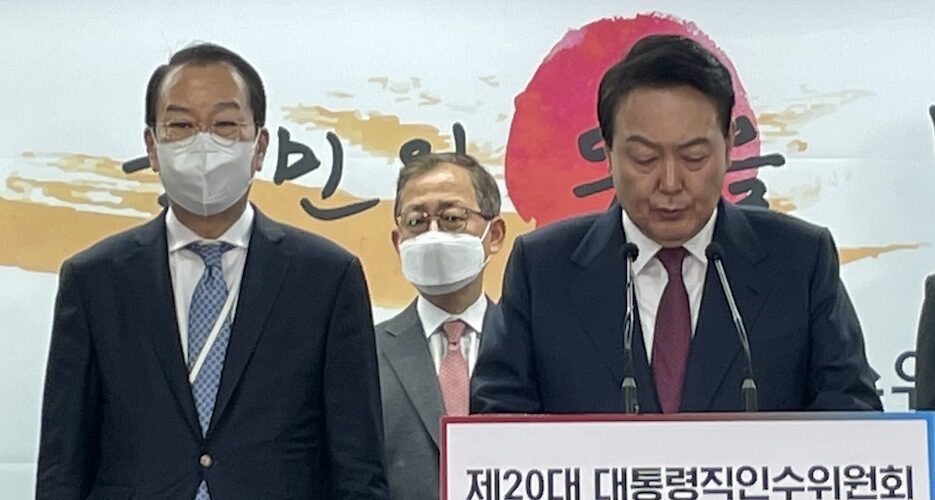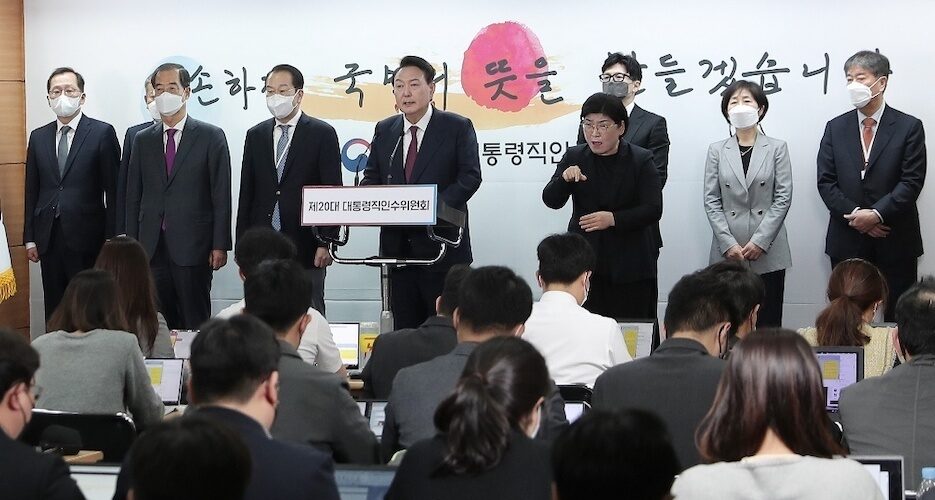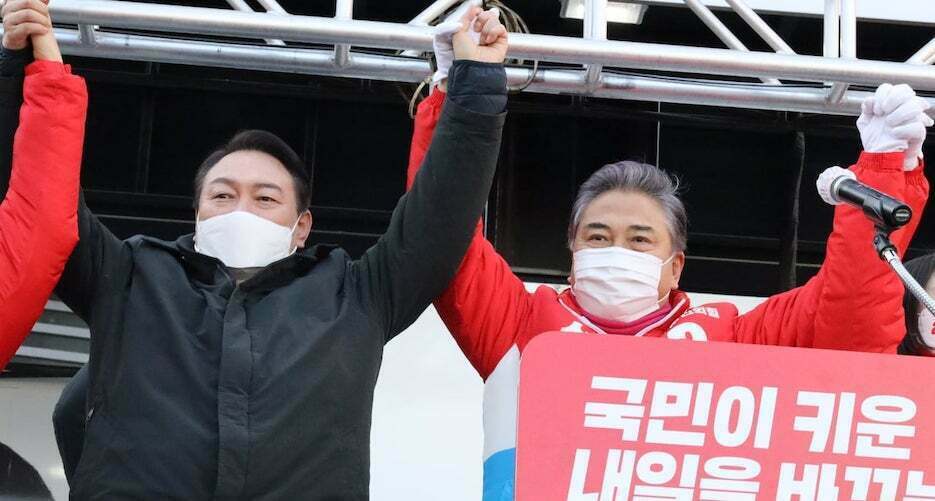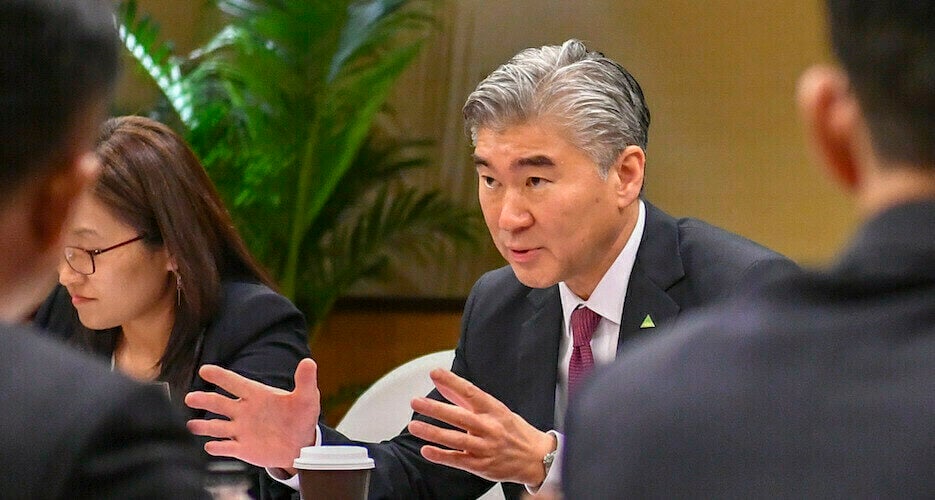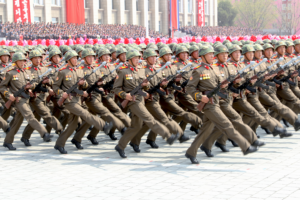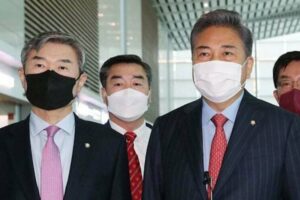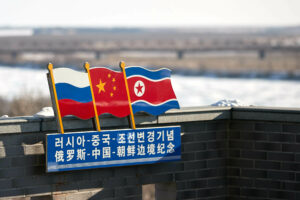North Korea to send 30 ‘technicians’ to Guinea for agricultural cooperation
West African country agrees to deal with DPRK ambassador to help support research center named after Kim Il Sung
Ifang Bremer April 19, 2022
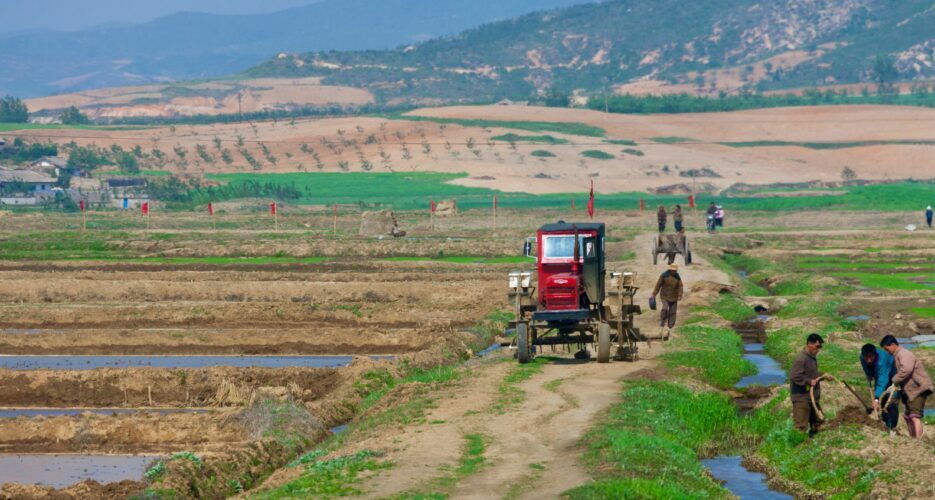
A North Korean tractor in a field in the countryside near Pyongyang | Image: Eric Lafforgue (May 2009)
North Korea will dispatch over two dozen “technicians” to Guinea to work in the agriculture sector, the West African country has announced, showcasing efforts to nurture bilateral ties despite international sanctions that prohibit DPRK citizens from working abroad.
Guinea’s agriculture ministry revealed the deal on social media earlier this month, posting photos of a meeting between North Korean Ambassador to Guinea Ri Chong Gyong and Agriculture Minister Mamoudou Nagnalen Barry. According to the post, the DPRK agreed to send “30 North Korean technicians” to Guinea at an unspecified date.
Pyongyang has signed several agreements for cooperation with African countries in the past few years, including one for health cooperation with Guinea just last month. But it is rare for governments to openly publish details of these agreements given the large scope of activities that U.N. Security Council (UNSC) sanctions on the DPRK prohibit.
Since Dec. 2019, UNSC sanctions have forbidden member states from hiring North Korean workers out of concerns that remuneration may end up in the hands of the Kim Jong Un regime and fund its weapons programs.
It is not clear if the agreement signed by Guinea and the DPRK includes sanctioned activities. Guinea’s agriculture ministry did not immediately reply to an NK News request for clarification.
According to the ministry’s announcement, other North Koreans are currently working in Guinea at an agricultural research center called the Agricultural Research Center Kim Il Sung in Kilissi (Centre de Recherche Agronomique Kim Il Sung de Kilissi), which was founded in 1982 and named after the former North Korean leader. The center has developed “30 varieties of rice, 20 varieties of corn and 15 varieties of peanuts,” according to the agriculture ministry.
However, the ministry writes, the research center faces many problems such as a “lack of infrastructure, lack of staff and lack of means of transportation.”
The 30 North Korean technicians, ostensibly needed to help improve these circumstances, are unlikely to come directly from the DPRK, as the country has almost completely sealed off its border to travel since Jan. 2020 in response to COVID-19.
As a result, a significant number of North Koreans remain stranded abroad and may wish to work in order to support themselves.
North Korea has a long history of cooperation with African countries, rooted in Kim Il Sung’s support for African liberation movements. This support “generated goodwill for North Korea that persists today,” Tycho van der Hoog, a researcher in the African Studies Centre at Leiden University, told NK News in 2021.
Edited by Arius Derr
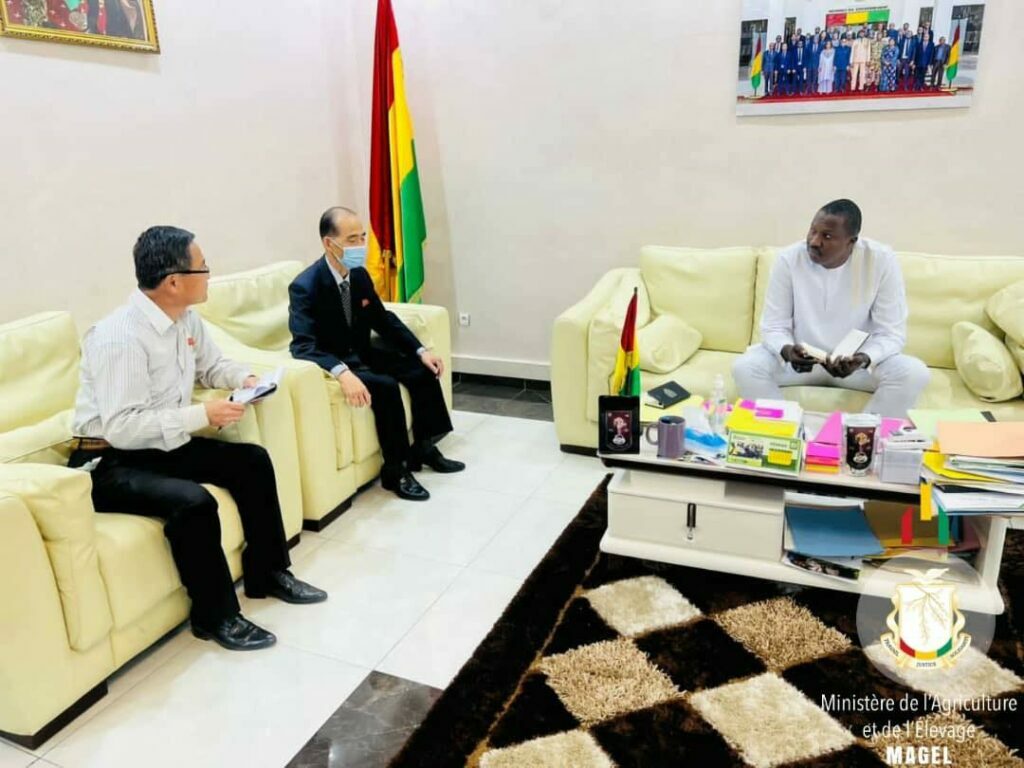 North Korean Ambassador Ri Chong Gyong met the Guinea Minister of Agriculture and Livestock, Mamoudou Nagnalen Barry, on April 6, 2022 | Image: Ministère de l’Agriculture et de l’Elevage Guinée
North Korean Ambassador Ri Chong Gyong met the Guinea Minister of Agriculture and Livestock, Mamoudou Nagnalen Barry, on April 6, 2022 | Image: Ministère de l’Agriculture et de l’Elevage Guinée
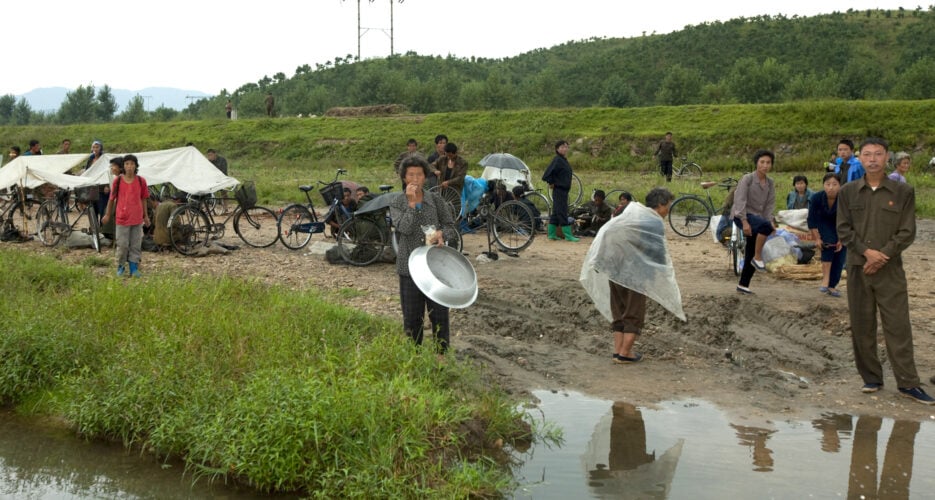
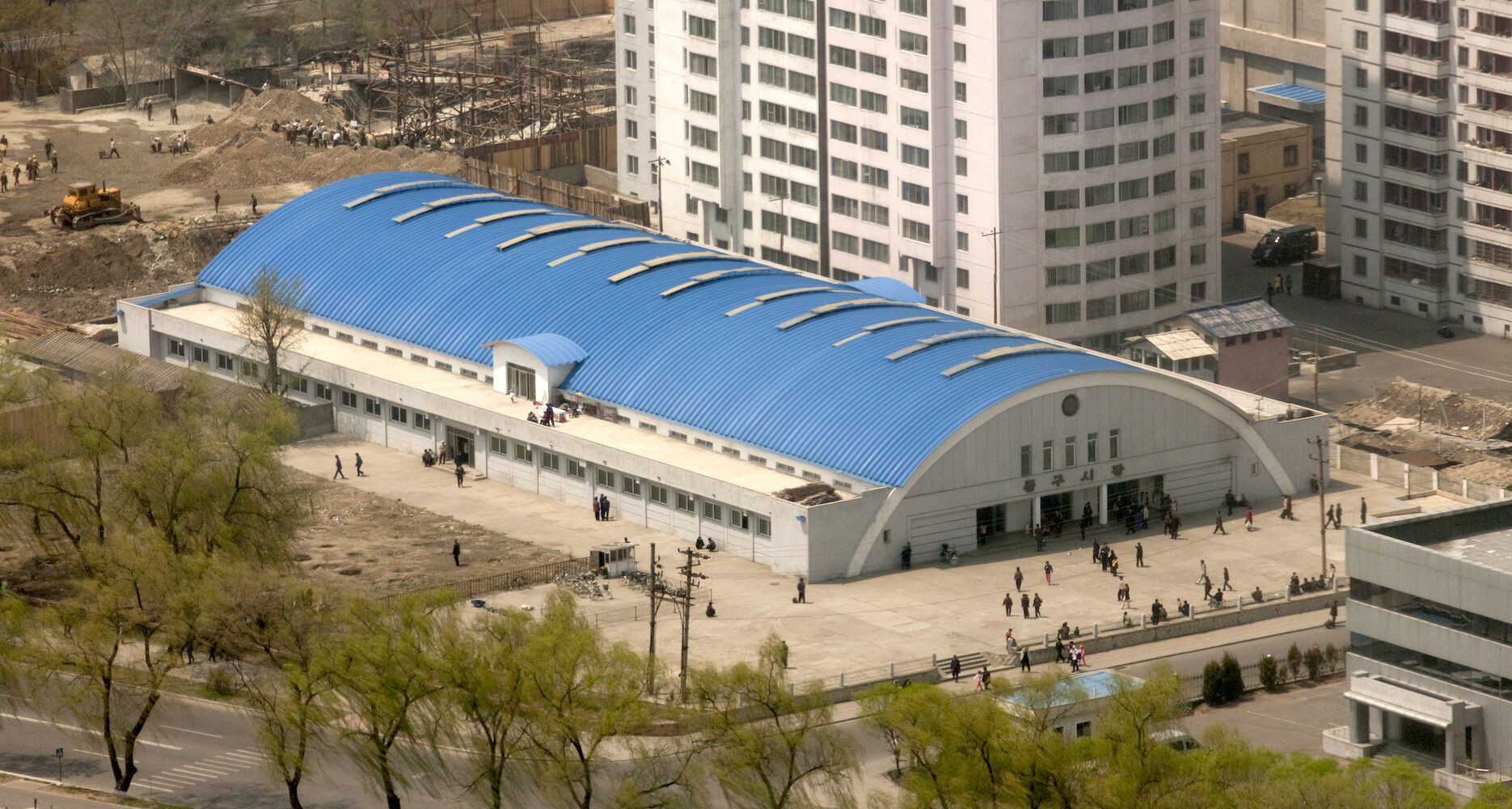 A market building in central Pyongyang | Image: Eric Lafforgue (May 2, 2010)
A market building in central Pyongyang | Image: Eric Lafforgue (May 2, 2010)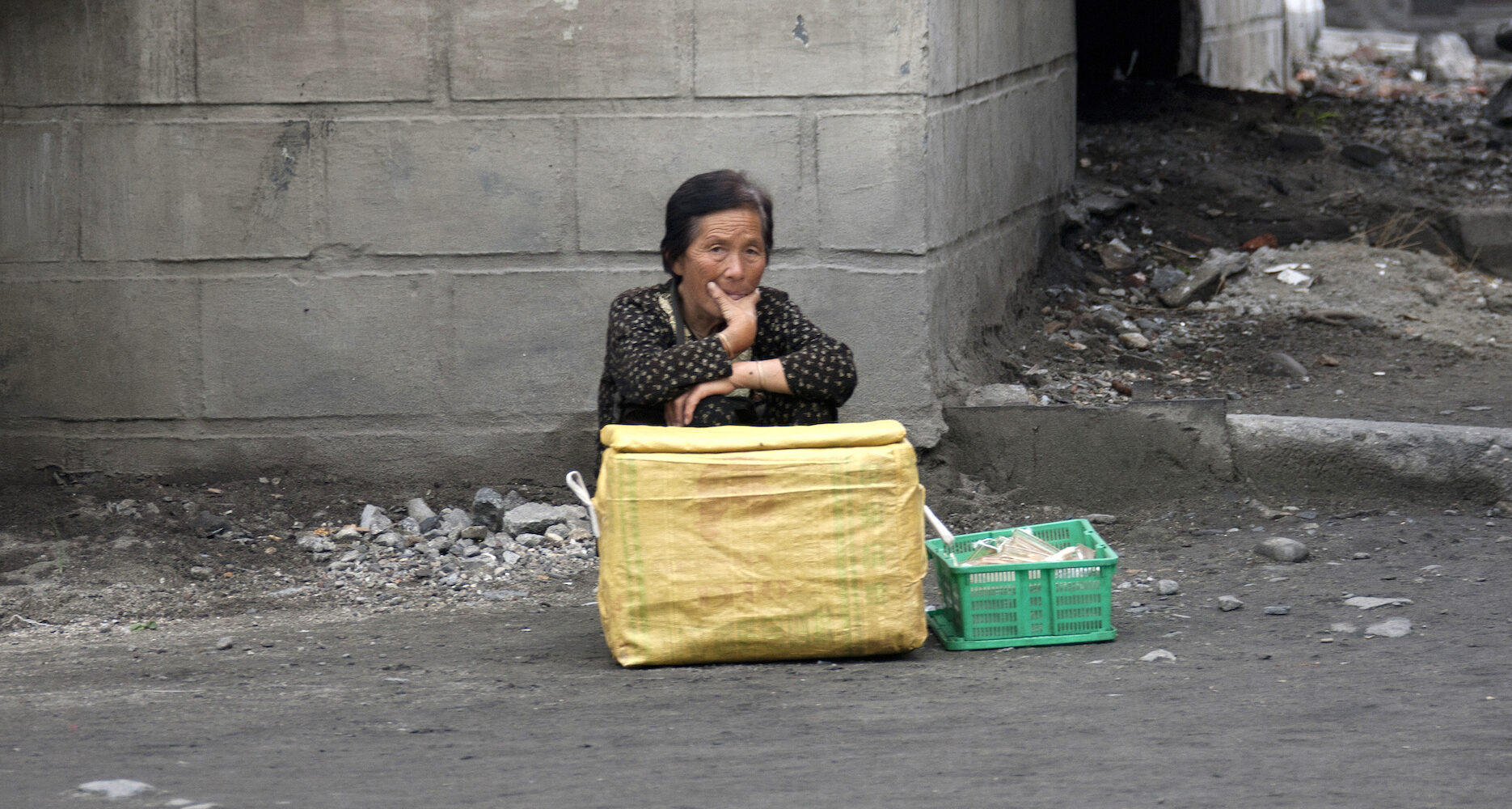 A North Korean woman sells ice cream on a street in Wonsan | Image: Eric Lafforgue (Sept. 14, 2011)
A North Korean woman sells ice cream on a street in Wonsan | Image: Eric Lafforgue (Sept. 14, 2011)
 미 핵항모 링컨호, 동해서 日자위대와 연합훈련…대북 경고차원
미 핵항모 링컨호, 동해서 日자위대와 연합훈련…대북 경고차원 미 핵항모 링컨호, 동해서 日자위대와 연합훈련…대북 경고차원
미 핵항모 링컨호, 동해서 日자위대와 연합훈련…대북 경고차원